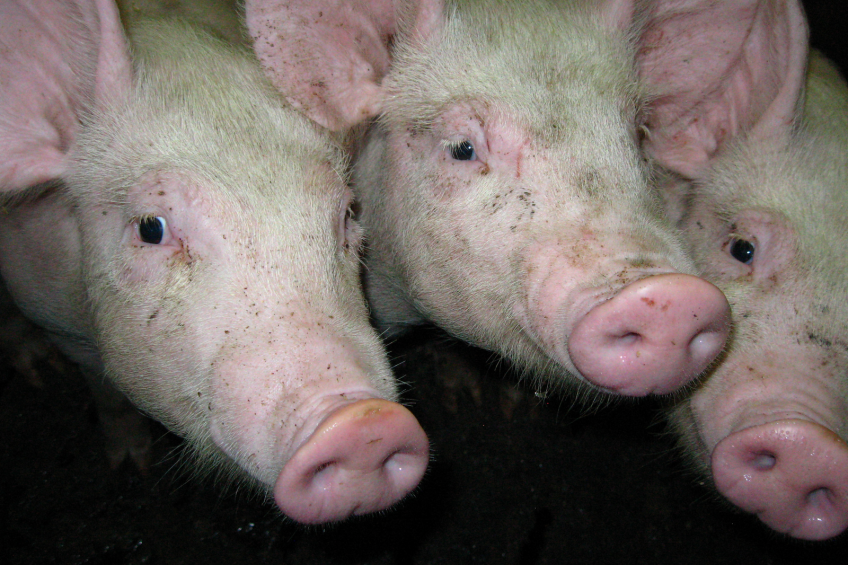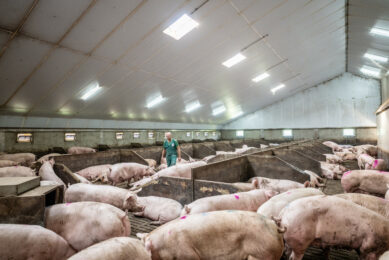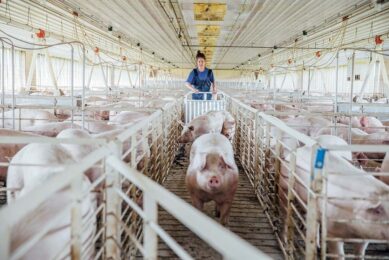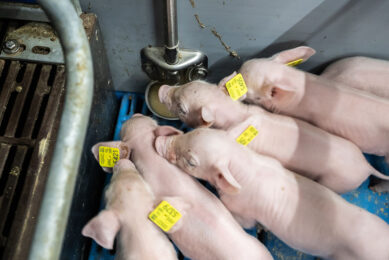More Lawsonia infections noted in the Netherlands

The Netherlands is seeing a growth in the occurrence of ileitis in pigs since regulations for antibiotics usage have been tightened.
Ileitis, or proliferative enteropahty, is caused by the bacteria Lawsonia intracellularis for which a remedy is not really available, although vaccination is an option, said Martijn Steenaert, Boehringer Ingelheim, during a recent meeting organised by the Netherlands Animal Health Service in the town of Markelo, the Netherlands.
Infection usually occurs through manure. Risk factors include predominantly the mixing of animals (e.g. after weaning), rodents and also human workers going from farm house to farm house, thus infecting the animals. Pigs could have acute ileitis as well as subclinical version in which the pigs perform suboptimally.
Until 2011, L. intracellularis could be controlled by using the antibiotics tylosin, tetracyclin and doxycyclin. Those last two had mostly been used for respiratory infections but affected L. intracellularis too. With current regulations in the Netherlands to curb even the therapeutic use in pig production, ileitis appears to be making a comeback.











